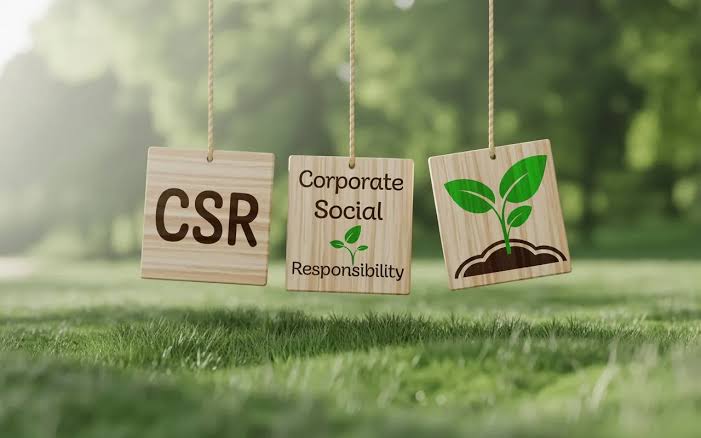Shakhawat Hossain Sumon
Published:2025-09-19 10:15:38 BdST
Bad loans, financial stress deepenBanks slash CSR spending
Corporate Social Responsibility (CSR) spending by banks in Bangladesh has fallen sharply in the first half of 2025, with an increasing number of lenders reporting zero allocations.
The downturn reflects the sector’s deepening financial stress, driven by record levels of non-performing loans (NPLs).
According to a recent Bangladesh Bank (BB) report, total CSR spending by banks stood at Tk150.56 crore between January and June 2025, down from Tk309 crore in the same period of 2024, a decline of more than 50%.
Banks with zero spending rise to 13
The number of banks that did not spend anything on CSR nearly doubled, rising from seven in 2024 to 13 in 2025.
These include Janata Bank, Agrani Bank, BASIC Bank, Bangladesh Krishi Bank, Rajshahi Krishi Unnayan Bank, Bangladesh Commerce Bank, Community Bank, National Bank, Global Islami Bank, Padma Bank, SBAC Bank, Union Bank, and the National Bank of Pakistan.
Traditionally active contributors such as Al-Arafah Islami Bank, Exim Bank, First Security Islami Bank, Islami Bank, Social Islami Bank (SIBL), Southeast Bank, Union Bank, and United Commercial Bank drastically reduced their allocations, with some cutting spending by more than half.
Exim Bank spent Tk7 crore, while SIBL Bank contributed just Tk2 crore. Both are among the five troubled Shariah-based banks currently approved for merger by the central bank.
Top contributors remain few
Despite the downturn, a handful of banks continued significant CSR spending. Mercantile Bank, a consistent leader in this area, allocated Tk24 crore in the first half of 2025 despite making Tk63 crore in profits last year. Shahjalal Islami Bank spent Tk14 crore, Jamuna Bank Tk12 crore, and Premier Bank Tk11 crore.
Allocation heavily skewed to disaster relief
More than half (55.12%) of the total CSR funds were channelled into “Other Sectors,” with 49.88% of that directed towards disaster management. BB noted that most of this allocation went towards purchasing and distributing blankets for cold-affected populations in winter-prone regions.
Banks collectively spent Tk75.10 crore on disaster management in January–June 2025, compared with Tk138 crore in the same period of 2024. While BB’s CSR policy recommends a 20% allocation for disaster management, actual spending has consistently exceeded this, overshadowing priority areas such as education, health, and the environment.
Mustafa K Mujeri, former chief economist of Bangladesh Bank and executive director of the Institute for Inclusive Finance and Development, said, “Previously, a large portion of this expenditure was allocated to the Prime Minister’s Relief Fund (currently the Chief Adviser’s Relief Fund). On various occasions, or following disasters, bank chairmen or MDs would personally go to Ganabhaban and deposit CSR funds there. Banks would then record this expenditure under the disaster management sector. As a result, this sub-sector accounted for the highest CSR spending for several years.”
However, after the change in government, banks are no longer required to allocate funds to the Chief Adviser’s Relief Fund. Consequently, CSR spending by banks now appears lower, though allocations to other sectors have increased. The records of earlier expenditures still remain.
In the past, most CSR funds were channelled through the Bangladesh Association of Banks (BAB) to the Prime Minister’s Office-managed fund, mainly for housing support, flood relief, and other purposes. Now that the governance system has changed, everything is proceeding according to the rules.
Decline across all major sectors
Education: Tk34.25 crore spent (22.75% of total), down from Tk63.63 crore in 2024. Most funds supported scholarships, educational materials, and infrastructure. Six months earlier, the sector had received Tk44.47 crore.
Health: Tk28.12 crore spent (18.67%), compared with Tk71.98 crore last year and Tk82.99 crore in the previous half-year, a 66.12% drop. Funds mainly went towards treatment for poor patients, free medical care, hospital operations, and equipment purchases.
Environment and Climate Change: Tk5.21 crore spent, down 65.31% from Tk15.02 crore in July–December 2024. Allocations supported tree plantation, research, and climate mitigation projects.
State-owned banks lag far behind
Out of six state-owned commercial banks, only three spent Tk1.01 crore on CSR, representing a meagre 0.67% of the sector’s total. Specialised banks performed even worse, collectively spending Tk0.02 crore (0.01%). By contrast, private commercial banks accounted for Tk141.54 crore, (94.01% of total CSR spending), while foreign banks contributed Tk7.99 crore (5.30%).
Bad loans eroding CSR capacity
The plunge in CSR allocations comes amid mounting bad loans, which reached a record Tk420,335 crore at the end of March 2025. Out of total loans worth Tk17,41,992 crore in the banking sector, 24.13% have turned sour.
Bankers admit that the heavy burden of toxic loans, coupled with political uncertainty since the change in government in August 2024, has squeezed CSR budgets. With profits under pressure, even leading institutions are reluctant to commit significant funds to social development.
CSR policy requires banks to divide funds as follows: 20% for disaster management, 30% for education, 30% for health, and 20% for environment and climate change.
Unauthorized use or reproduction of The Finance Today content for commercial purposes is strictly prohibited.


